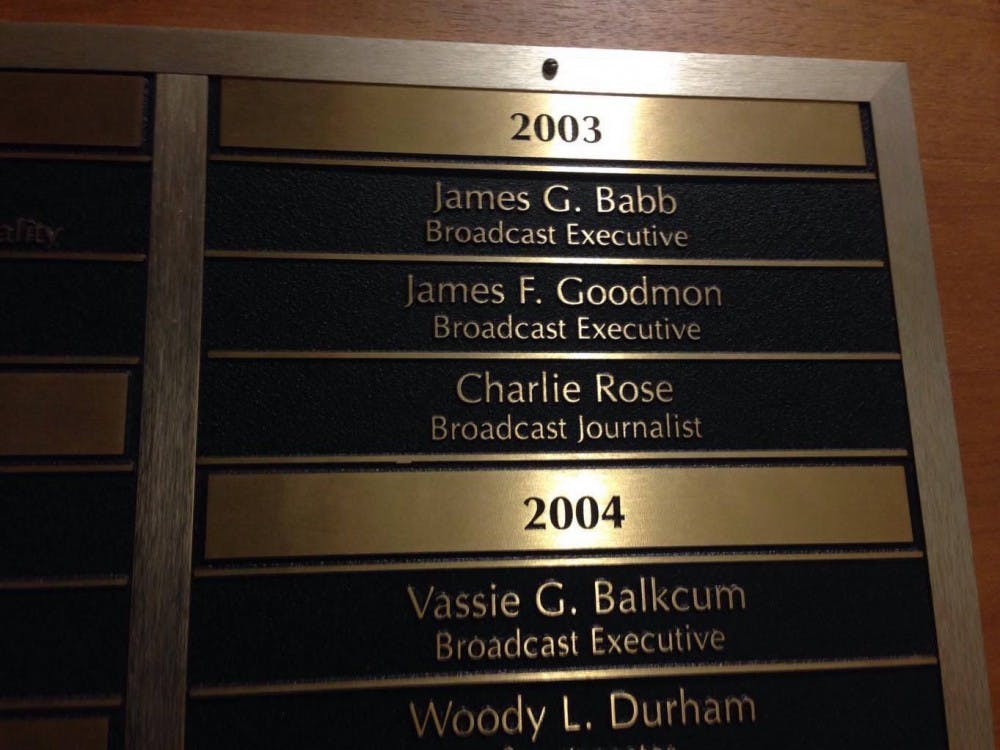The DeWitt Wallace Center for Media & Democracy at Duke University announced Monday that it was rescinding an award honoring prominent journalist Charlie Rose given in September 2000. Duke is the latest in a growing number of universities revoking honors from Rose, who has been accused of sexually harassing eight women over the course of his career.
The Futrell Award for Outstanding Achievement in Communications and Journalism is given annually to recognize outstanding Duke graduates working in journalism, according to a statement released by Bill Adair, director of the DeWitt Wallace Center.
“I have consulted with students, faculty and staff and found an overwhelming consensus that we should take this action and emphasize that the DeWitt Wallace Center does not tolerate sexual harassment in any form,” he wrote.
A Washington Post article published Nov. 20 detailed Rose’s history of making unwanted sexual advances toward eight women, all employees or aspiring employees, over the course of his career. Rose hosted the “Charlie Rose" show, co-hosted “CBS This Morning” and contributed reporting to “60 Minutes.” He was fired from CBS News on Nov. 21 as a direct result of his harassment.
“The thoroughly reported Post story, which Rose himself has substantially confirmed with his apology, makes clear that he used his status to prey on women who worked for him,” Adair said. “The Post story is a reminder about the important role that journalists play in holding people in power accountable — including people in their own industry.”
Rose’s name will be removed from a plaque honoring Futrell Award winners in a hallway of the DeWitt Wallace Center.
The news of Duke revoking Rose’s award arrived while the School of Media and Journalism at UNC is considering removing Rose from the N.C. Journalism Hall of Fame. Rose was inducted in 1999.
Kyle York, the director of communications for the UNC School of Media and Journalism, wrote in an emailed statement that the school is currently deciding what to do about Rose’s position in the Hall of Fame.
“This is an unprecedented incident for the N.C. Media and Journalism Hall of Fame,” he said. “The revelations involving Charlie Rose are disturbing, and we take them very seriously. Because of the seriousness of the matter, we need to be thoughtful and deliberative about the actions we take with regard to Charlie Rose and the Hall of Fame.”




